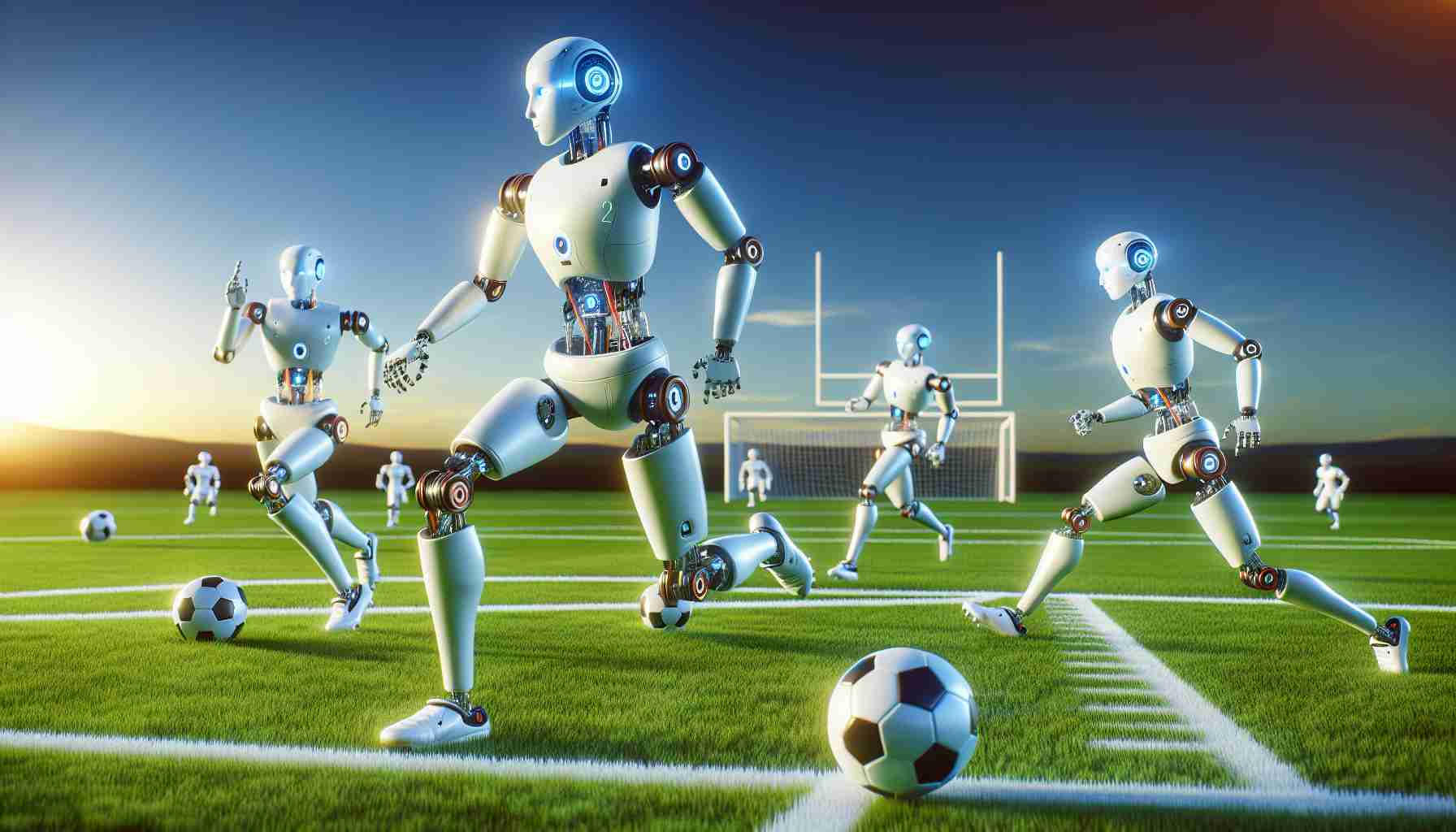In an innovative blend of artificial intelligence and athletics, Google DeepMind has embarked on a project that pushes the boundaries of robotics. By harnessing the principles of reinforcement learning, DeepMind’s AI has been fine-tuning the physical dexterity of robots, enabling them to engage in the sport of football.
DeepMind focused on the inherent challenges of robot mobility, which have traditionally been limited by their pre-defined capabilities. The researchers sought to overcome these limits by developing a learning framework, leading to robots with adaptable, full-body control.
The initiative was not a mere academic exercise; the robots were taught to navigate the complexities of football. They were equipped with a virtual training ground where they developed the ability to walk quicker, execute sharp turns, kick with precision, and regain balance after a fall—all crucial skills on the pitch. Their newfound agility further allowed them to execute defensive strategies like shielding the ball and intercepting the opponent.
DeepMind’s pursuit involved simulated environments enriched with physical rules, where AI agents practiced before the skills were transferred to humanoid robots. These robots, sporting 20 controllable joints, were thus able to achieve a higher level of performance compared to their scripted contemporaries.
The coupling of AI with sports signifies a leap towards more dynamic forms of robotic applications, suggesting future robots might not only assist but also partner with humans in various interactive and recreational endeavors. This development from Google DeepMind displays the promising intersection of technology, play, and real-world skills.
Current Market Trends:
The integration of AI in robotics has become a dynamic and rapidly evolving field. AI’s impact in enabling robotics to perform complex tasks is gaining momentum across various industries, inclusive of sports. Reinforcement learning, the AI technique being leveraged by Google DeepMind, has grown in popularity because it can optimize robot behavior through trial and error, leading to more robust and flexible applications.
In sports, robots that can perform specific athletic tasks showcase the potential for improving training methods, enhancing entertainment, and even aiding in the engineering of sportswear and equipment based on the movement analysis of human-like robots.
Forecasts:
The robotics market is anticipated to witness a surge in the usage of AI. With increased computational power and advancements in machine learning, robots are expected to become more autonomous and competent in complex, unpredictable environments. Analysts project a continuing growth in the field of AI-powered robotics, which includes applications in entertainment, healthcare, and assisted living, with sports robots becoming an intriguing niche category.
Key Challenges and Controversies:
A major challenge lies in the transferability of skills learned in simulated environments to real-world scenarios. Simulations may not perfectly replicate the nuances of the physical world, leading to possible discrepancies in robot performance when transitioning from virtual to real.
Another pertinent controversy hinges on the ethical implications and long-term societal impact of robots exhibiting human-like behaviors. Concerns also arise around the displacement of human roles in sports and other domains, stirring debate on the necessity and regulation of AI in such activities.
Advantages:
– Robots trained with AI can exceed the boundaries of pre-programmed capabilities, achieving greater flexibility.
– Such developments can enhance safety by allowing robots to perform dangerous or repetitive tasks, reducing risks for humans.
– AI training can create opportunities for humans to interact with robots more naturally, leading to improved assistance and collaboration.
Disadvantages:
– High costs of research and development associated with cutting-edge AI-powered robots could limit accessibility.
– The potential for unpredictable behaviors as AI-driven robots learn and adapt independently may raise safety concerns.
– Ethical dilemmas arise concerning the replacement of humans in certain job sectors or activities.
As AI technology advances, keeping a close watch on the development of robots imbued with sophisticated skills, like those demonstrated by Google DeepMind’s football-playing robots, becomes essential. For additional information on the latest in AI and robotics, exploring Google-related products and research can be insightful. You can visit Google’s official website through the following link: Google.
The source of the article is from the blog mendozaextremo.com.ar

